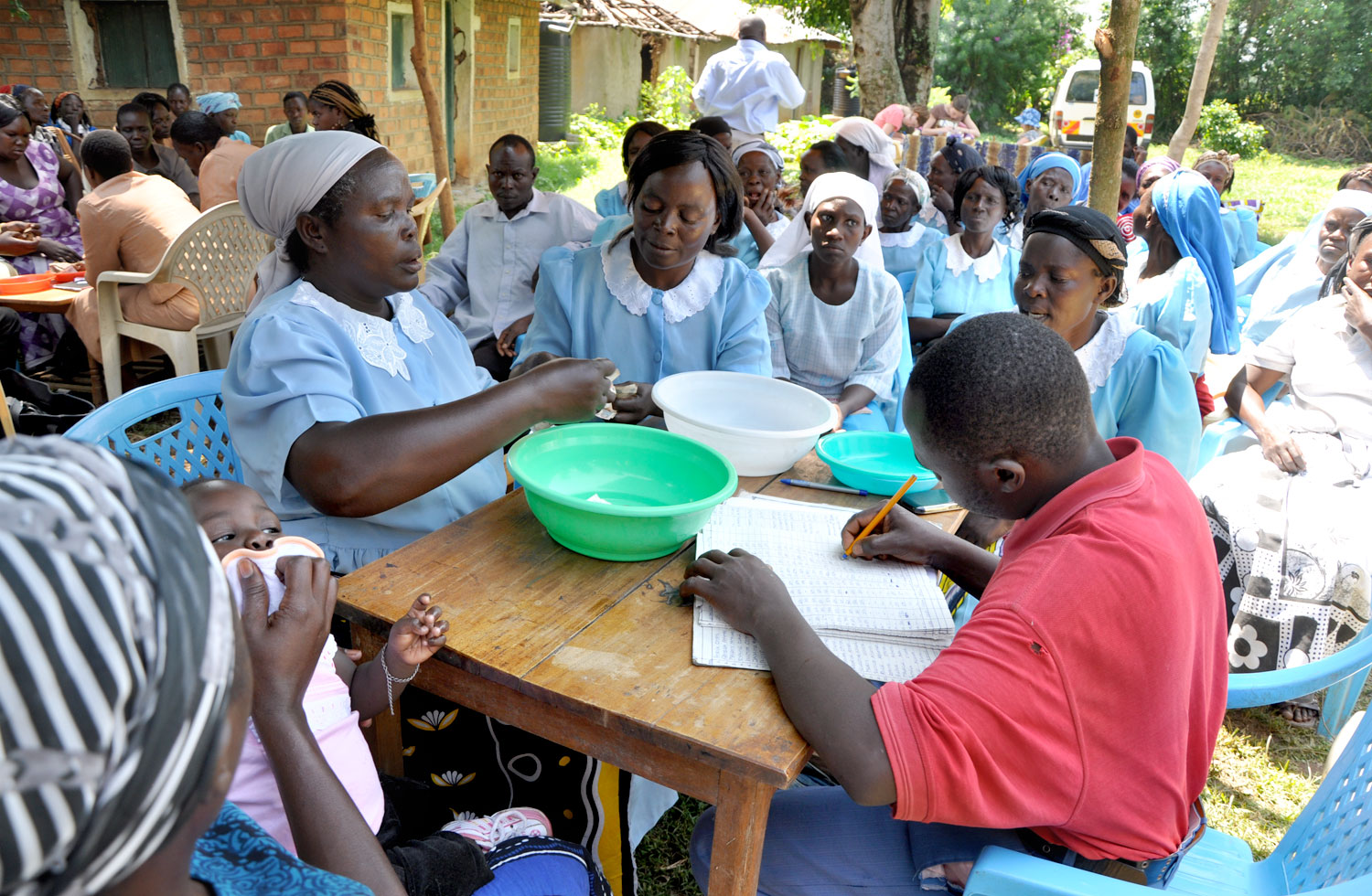Savings Groups Enable Women to Afford an Efficient Cook Stove in Kenya
Project type: Efficient cook stoves
Project location: Siaya, Kenya
Project status: In operation, credits available
Annual CO₂ reduction: 183,549 t
Traditionally the rural communities of the Siaya region of western Kenya have cooked on open fires, which require huge amounts of firewood. Thanks to community savings and loaning (CSL) groups, however, women can now afford more efficient stoves. This reduces the demand for firewood and thus protects the local forests, which leads to reduced CO₂ emissions. Furthermore the CSL groups lead to a financial and social empowerment of women.
The stoves use 40-50 per cent less firewood and are made by local stove artisans using locally available materials. They save households money and the time required for collecting firewood. In addition, the superior, more efficient combustion process significantly improves the air quality within the home, thus helping to reduce respiratory disorders specially of women and children.
Before, we would have to collect firewood often because it would get used up quickly and sometimes even at night if the firewood ran out, we’d have to go outside in the dark looking for more firewood which can be dangerous because there are snakes here.
Community saving and loaning (CSL) groups empower women
The myclimate project partner Tembea sets up and manages the CSL groupsThese savings communities are important because people here in the countryside would not get a loan from a normal bank because they don't have a fixed income that would give the bank security. . On average, fifteen women meet between two and four times a month. Over time, CSL groups mature and are graduated to semi-autonomous operating entities across the project region. They conglomerate into women-led “financial institutions” with power to influence decision-making, shape leadership and inform policy at project level and beyond. The methodology of community savings and loaning has leadership components especially for women, as there is always a chair person, a secretary and a treasurer, which are mostly female.
The CSL group has been very helpful. There is a time when I have lacked school fees, so I go to my group and ask for a loan that I pay later.
Thanks to this secure method of financing, women can afford a stove, and often have money to spare for such things as healthcare, insurance, school fees or high-quality seeds. Tembea subsidises half of the stove price, whilst an interest-free loan is granted for the remaining 1,000 shillings. The women must pay back this loan within two years at the latest.
Why are the cook stoves not provided free of charge?
"What costs nothing is worth nothing." The reason why cookers are not given away but only subsidised in climate protection projects that myclimate supports is that people appreciate the cook stoves more and use them more often if they have to pay for it. This also guarantees a high usage rate, i.e. emissions are avoided as effectively as possible.
Employment opportunities and sensibilisation
The money from the carbon credits also flows through Tembea into educating local stove artisans in the production and installation of the efficient stoves as well as into , training households by field officers to use and maintain the stoves correctly. Additionally, , and into campaigns are being financed to raise awareness among the population regarding the subjects of climate change, renewable energies and energy-efficiency.
I enjoy the work that I do because I like travelling and meeting new faces. I also see these cook stoves having a positive impact on our environment.
Vincent Oduor, 34 years old, lead artisan with Tembea
Project partner and local implementation
The project is implemented by the Tembea Youth Center for Sustainable Development (TEMBEA), a local Kenyan community based development organization, which also sets up and manages the CSL groups since 2010.
Monitoring and verification of the project
The sales of the emissions reductions generated by the project is essential to the project. The project is registered with the Gold Standard. This is the highest quality standard in the world. The project is monitored annually and then reviewed and audited by an independent third party. For more information, see "Documentation” below.
This project contributes to 9 SDGs (as of end 2022):
Find out how myclimate reports these SDGs in our FAQ.
The following SDGs are verified by the Gold Standard:
A household saves 35 euros and 166 hours due to reduced fuel consumption.
Women and children from 124,310 households benefit from better air quality.
72,870 people have been reached with awareness creation on climate change, clean cooking and community saving & loaning.
30% of the jobs created by the project are held by women and the project reduces time spent by women and girls collecting firewood.
573,554 persons benefit from efficient and cleaner cooking with 110,299 efficient stoves constructed.
578 people benefit from permanent employment.
The clean and energy efficient cookstoves are produced locally with local material.
Each stoves saves around 2.0 t CO2 per year.
These SDGs have been approved by myclimate:
541,712 tons of wood have been saved since project start.
Situation without project
Use of non-renewable biomass fuels for cookingDocumentations
Project standard

Project number
7137























